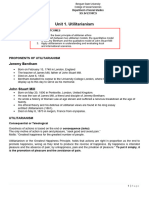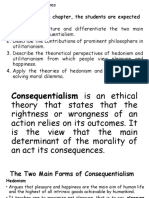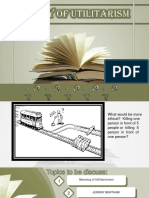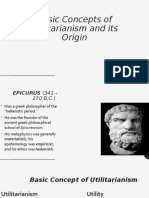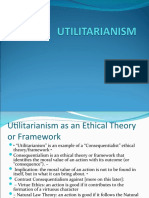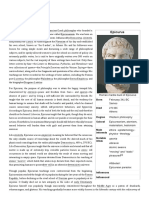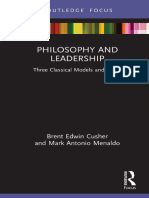0% found this document useful (0 votes)
50 views11 pagesCHAPTER IV Utilitarianism
This chapter discusses John Stuart Mill's utilitarianism, emphasizing the importance of consequences in moral decision-making and the Greatest Happiness Principle, which prioritizes actions that promote happiness for the greatest number. Mill distinguishes between higher and lower pleasures, arguing that intellectual and emotional pleasures are more valuable than mere physical ones. The chapter also addresses objections to utilitarianism, particularly the critique that it reduces human morality to mere pleasure-seeking, and Mill's responses that highlight the complexity and quality of human experiences.
Uploaded by
paulanthony.rodriguezCopyright
© © All Rights Reserved
We take content rights seriously. If you suspect this is your content, claim it here.
Available Formats
Download as DOCX, PDF, TXT or read online on Scribd
0% found this document useful (0 votes)
50 views11 pagesCHAPTER IV Utilitarianism
This chapter discusses John Stuart Mill's utilitarianism, emphasizing the importance of consequences in moral decision-making and the Greatest Happiness Principle, which prioritizes actions that promote happiness for the greatest number. Mill distinguishes between higher and lower pleasures, arguing that intellectual and emotional pleasures are more valuable than mere physical ones. The chapter also addresses objections to utilitarianism, particularly the critique that it reduces human morality to mere pleasure-seeking, and Mill's responses that highlight the complexity and quality of human experiences.
Uploaded by
paulanthony.rodriguezCopyright
© © All Rights Reserved
We take content rights seriously. If you suspect this is your content, claim it here.
Available Formats
Download as DOCX, PDF, TXT or read online on Scribd
/ 11





